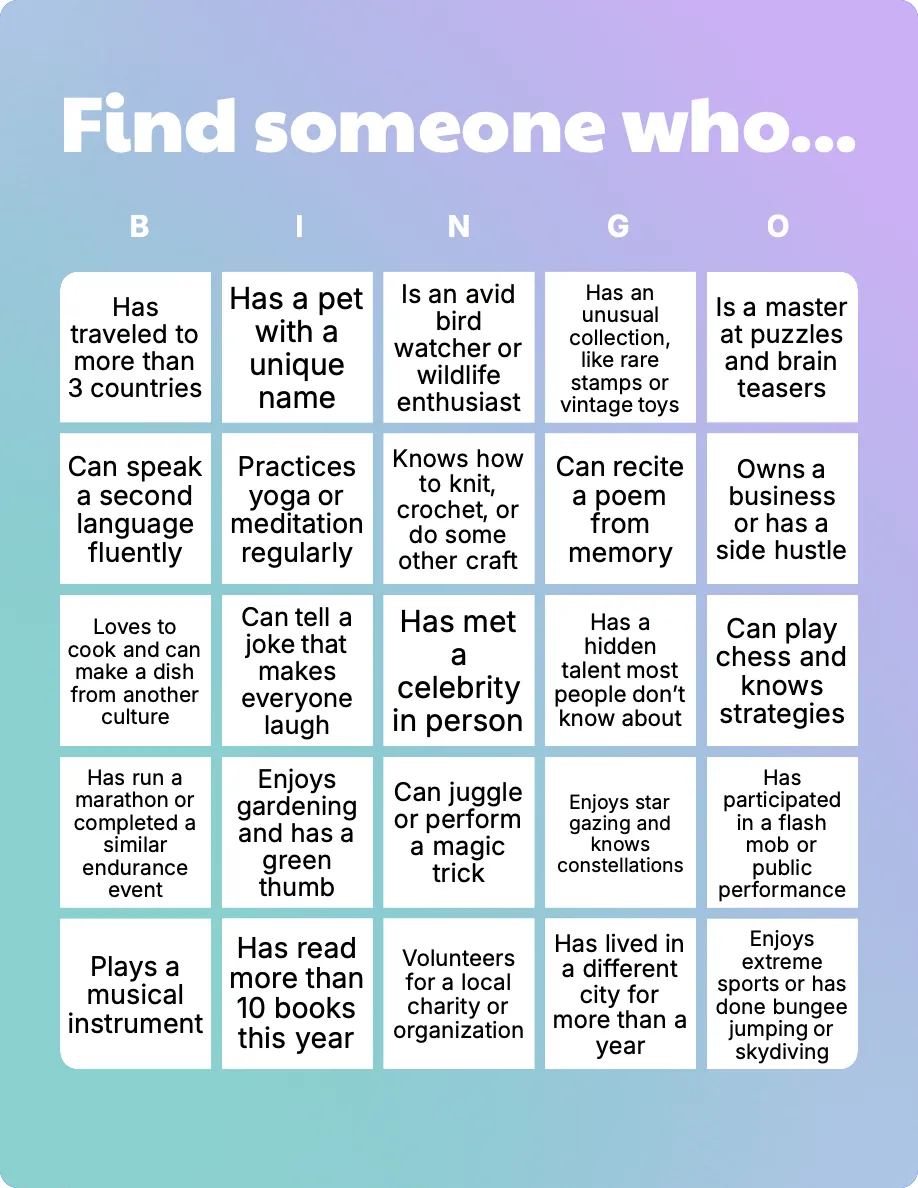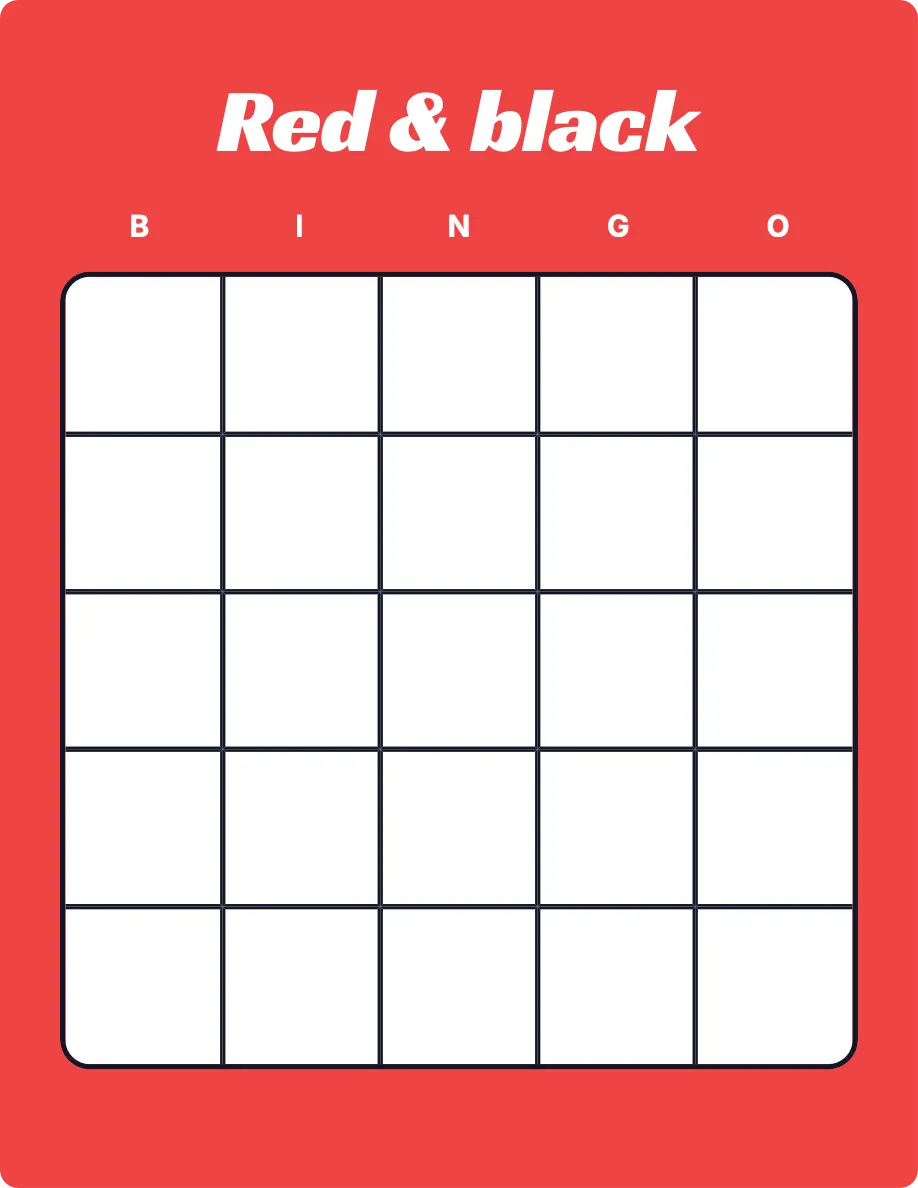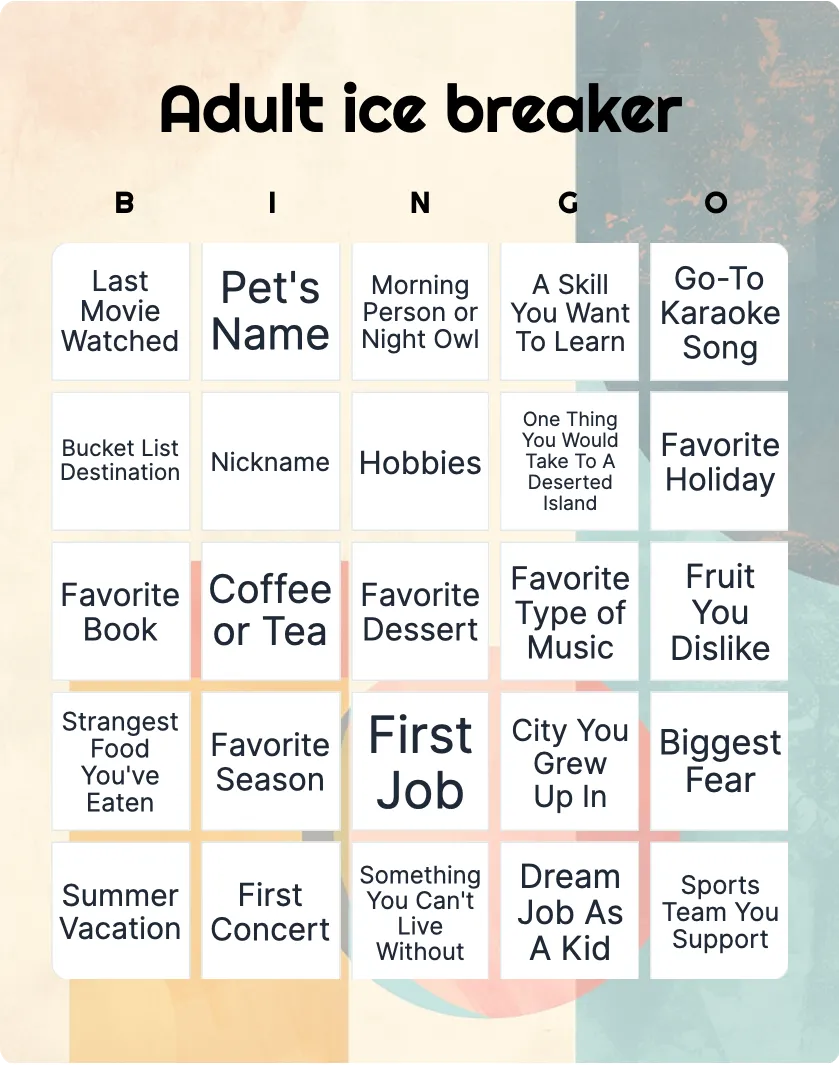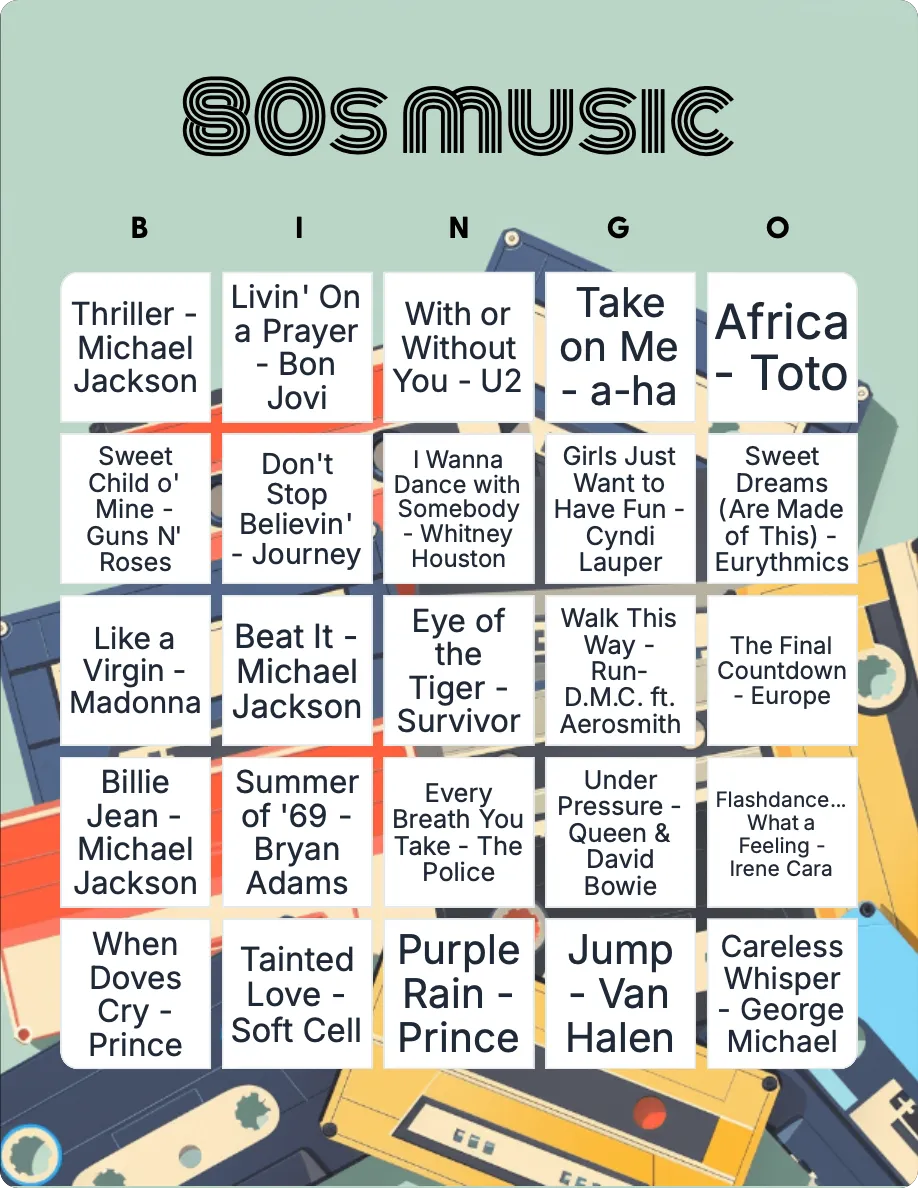Severance: Do Americans have friends at work anymore?
One in four Americans lack a single friend at work—yet 63% say friendships boost job loyalty. Our new study reveals just how lonely, and connection-hungry, the modern workplace really is.
- Reading Time
- 10 min read
- Publish Date
- Jun 26, 2025
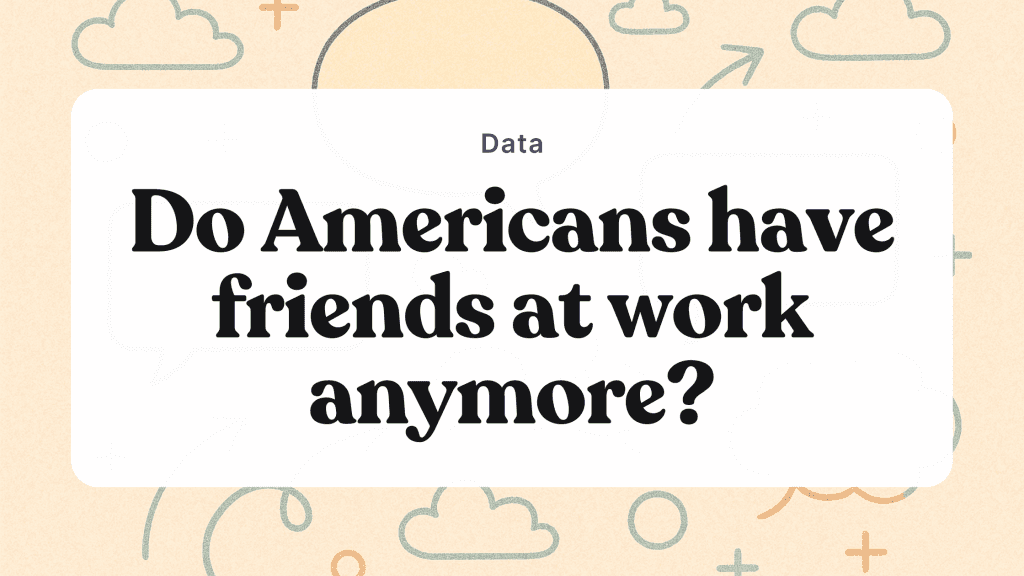
Americans spend over one third of their life at work. That’s 90,000 total hours alongside colleagues. Yet despite all that time together, recent studies show that we’re feeling more disconnected than ever.
In fact, workplace friendships are on the decline. Compared to previous generations, today’s workers are less likely to form close bonds at work. Remote and hybrid schedules, increased job-hopping, and a culture of overwork have all contributed to thinner social ties. According to Cigna, workplace loneliness costs U.S. employers an estimated $300 billion annually in lost productivity, turnover, and healthcare.
The US’s top doctor, surgeon general Vivek Murthy warns that loneliness isn’t just emotionally painful, it’s physically draining. “Loneliness and social isolation increase the risk for premature death by 26% and 29% respectively. More broadly, lacking social connection can increase the risk for premature death as much as smoking up to 15 cigarettes a day. In addition, poor or insufficient social connection is associated with increased risk of disease, including a 29% increased risk of heart disease and a 32% increased risk of stroke.”
Loneliness isn’t just a moral issue, it’s a public health one. It’s literally making us sicker.
To understand how deep the epidemic runs, the data experts at Bingo Card Creator commissioned a survey of 2,000 employed American adults to uncover exactly how connected or isolated people really feel at work today.
Key findings:
- 1 in 4 Americans say they don’t have a single friend at work and the numbers are even more worrying for women.
- Nearly half (46%) of Americans wish they were closer to their colleagues, rising to 60% for Gen Z.
- 70% of workers socialise with coworkers outside of work, with 11% seeing colleagues more than once a week.
- Over a third (35%) of workers have experienced negative consequences such as gossiping or favoritism from having friends at work.
- 64% of workers have felt lonely at work while almost one in ten often feel that way.
- Three in four workers (75%) think it's important to be friends with their manager.
- 62% say workplace friendships help boost their morale and motivation.
- 63% say having friends at work influences whether they stay in a job, and 71% would turn down a higher-paying role if the company culture felt cold or isolating.
Table of contents
- 1 in 4 Americans don’t have any friends at work
- 60% of Gen Z workers wish they were closer to their colleagues
- 70% of Americans socialize with colleagues outside of work
- Almost two thirds of Americans have felt lonely at work
- Having friends at work makes Americans more likely to stay in their jobs
- Break the Ice and get to know your colleagues
- Methodology
1 in 4 Americans don’t have any friends at work
The study reveals that a shocking 25% of Americans don’t have any friends at work, despite spending tens of thousands of hours alongside their colleagues. While most employees report having two to three workplace friends, and 9% having more than six, the number of people with no social connections at work is alarmingly high.
Age plays a significant role. Almost a third of workers aged 50 and over report having no friends at work, although this demographic is more likely than other groups to have more than 6 friends when they do form connections. Young people seem to fare better socially with only 20% of 18 to 39 year olds saying they have no workplace friendships at all.
Gender disparities are also striking. While 21% of men say they don’t have any friends at work, this figure rises to 29% for women. Men are more likely to report having multiple friends at work overall, outperforming women in each other category.
These patterns have barely shifted since the pandemic. However, 25% of workers now say they are feeling more connected than they did before the pandemic, although 21% report feeling less connected than before.
When it comes to workplace friendships, there's a clear geographic divide across the U.S.
Several Midwestern states, including Nebraska, Kansas and Minnesota rank among the friendliest, reporting the lowest percentage of workers without a single friend at work, well below the national average of 25%. These states in particular are known as being friendly and community-oriented which builds a culture that values friendships, even in the workplace.
At the other end of the spectrum, states with the highest percentage of friendless workers appear to be rural or sparsely populated states such as Wyoming, Vermont, Maine, Utah, and Arkansas. These regions may have smaller office sizes, fewer coworkers or remote work prevalence, making it harder to build workplace friendships.
60% of Gen Z workers wish they were closer to their colleagues
Not everyone wants to be close to their coworkers, for a multitude of reasons. But when asked about their ideal level of connection with their coworkers, nearly half of Americans (46%) said they wished they were closer with their colleagues, while 15% said they prefer to keep their work and personal lives separate.
The desire for stronger workplace connection is felt deeper by younger workers. 60% of Gen Z, those aged between 18 and 29, say they want closer relationships with the people they work with. Interestingly, while a similar proportion still value boundaries between work and personal life, fewer young workers say they’re satisfied with the current level of closeness they have at work.
The idea of a "work wife" or "work husband", someone you're especially close to in the workplace in a platonic way, while once trendy may be falling out of fashion. Just 12% of Americans say they currently have one, and 16% say they’ve had one before. The vast majority, 72%, say they’ve never had that kind of relationship with a colleague, hinting that the tradition is becoming less common in today’s work culture.
The term remains most popular among younger workers, with 17% of Gen Z currently reporting a work spouse. Among those aged 50 and over, that number drops to just 9%, suggesting the tradition is less common with older generations. Surprisingly, men are more likely than women to say they've had a work spouse, 30% of men compared to just 25% of women.
70% of Americans socialize with colleagues outside of work
It’s common for workers to hang out with their colleagues within a work environment, whether it’s chatting around the water cooler, catching up at lunch or even sliding in personal questions between work. However, how much do Americans actually hang out outside of work?
The study found that 70% of Americans socialize with their coworkers in some capacity outside of the work environment. For most this is occasional, just a few times a year, but 11% say they hang out once a week or more.
Still, 30% of Americans say they never hang out with their colleagues outside of work hours. For some, that’s a deliberate choice to separate their work and personal lives, while others may find it challenging to turn professional relationships into real-life friendships.
Among those who spend time with colleagues outside of work, the most popular way to connect is by grabbing dinner or drinks, a natural extension of the workday and an easy way to unwind. Work-sponsored events like office parties come next, such as the often controversial office Christmas party. Casual coffee catch-ups also rank highly, highlighting that even low-key interactions play a big role in building workplace friendships.
Hanging out virtually through Zoom happy hours or Microsoft Teams quizzes seem to have been left in the past, although the least common way to socialize is through volunteering or charity events.
Almost two thirds of Americans have felt lonely at work
Despite being surrounded by colleagues every working day, 64% of Americans report having felt lonely at work at some point, with one in ten reporting that they feel lonely often. On a more positive note, 37% report never feeling lonely on the job.
This suggests that loneliness isn’t just about physical presence but emotional connection. As Fay Bound Alberti, historian and author of A Biography of Loneliness, puts it:
"People think that being lonely means you have to be alone. But it's not so much the physical distance from others that makes us feel most lonely, but the emotional distance. The loneliest people are those in relationships that should be fulfilling – but are not."
When asked why they wished they were closer with their coworkers, 62% of Americans said it would boost morale and motivation. Feeling more connected followed closely behind with 59% of responses, with many also pointing to the potential to reduce stress and increase overall happiness.
When motivation is high, employees are more committed to their work, find more value in their tasks and potentially do a better job, which is likely why so many people wish to feel closer to their colleagues.
Although work friendships can bring many positives, sometimes they can make working life a lot harder. Close personal relationships can lead to gossiping, conflicts and even favoritism. It’s not unusual for someone to lose their job if these boundaries are crossed.
The study revealed that over a third of Americans (35%) have experienced negative consequences from getting close to coworkers. Still, most workers (65%) report no negative fallout from their office friendships, showing that for many, the benefits outweigh the drawbacks.
Sometimes workplace friendships are muddled further by the natural hierarchy of corporate America. While 75% of workers say being friends with their manager is a good idea, at least in certain situations, a quarter believe it’s best to keep things strictly professional.
This is a contentious issue, with some workers believing that a friendly relationship leads to better communication and trust while others worry it can lead to favoritism or make tough conversations more difficult.
Having friends at work makes Americans more likely to stay in their jobs
Workplace friendships aren’t just good for morale, they’re good for retention. Nearly two-thirds of Americans (63%) say having friends at work makes them more likely to stay in a job, highlighting just how crucial a positive work culture is to employee satisfaction.
A strong company culture can even outweigh salary. A significant 71% of workers say they would at least consider turning down a higher-paying job if the workplace culture felt cold or isolating. In contrast, 29% of workers say that they would take a higher pay despite the culture.
Break the Ice and get to know your colleagues
We’ve already seen that strong connections with coworkers can make us healthier, happier, and more engaged at work. So why not take the first step?
Use our custom Workplace Bingo Card to spark conversations, find common ground, and build better relationships across your team. It's a fun, low-pressure way to get to know the people you spend your 9-to-5 with, or feel free to create your own custom Bingo Card tailored to your office culture.
Templates
Methodology
The data was derived from a survey by Bingo Card Creator conducted online via Pollfish on June 3, 2025. About 2,000 employed Americans aged 18+ completed the survey. All decimals in this report are rounded to the nearest percentage point, which may lead to certain numerical totals adding up to slightly more or less than 100%.
Was this article helpful?
Comments

Log into Bingo Card Creator
Log in to share your opinion about this article
Related articles
Browse all
Easier sharing, smarter embedding
Discover easier sharing and smarter embedding for your bingo cards! Instantly create interactive URLs, embed directly on your website, or share as templates—turning any event into engaging bingo fun.
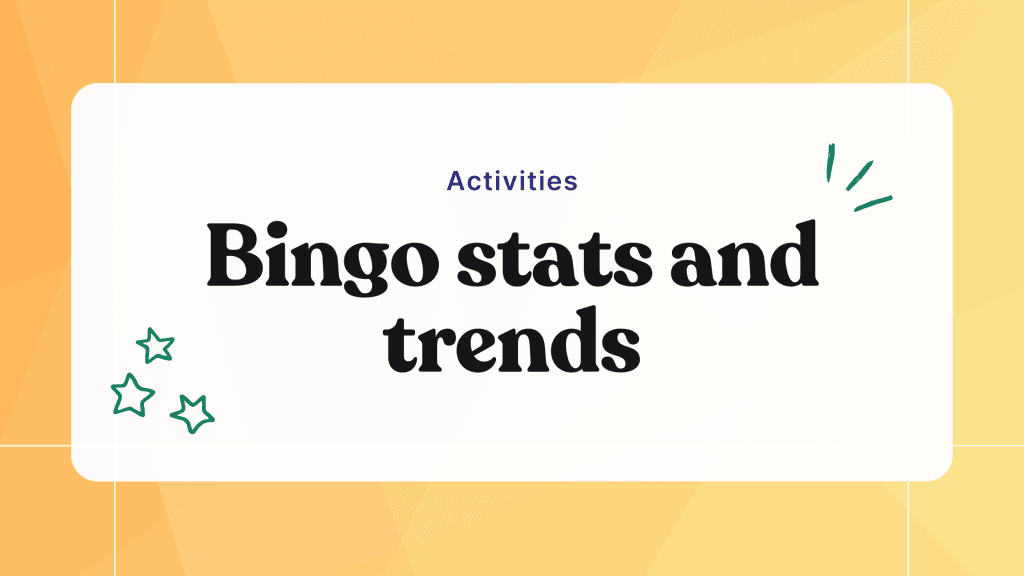
The fascinating world of bingo: Stats and trends
Discover the fascinating world of bingo with key stats and trends, from global popularity and player demographics to industry size. Dive into how bingo has evolved and why it remains a beloved pastime.

Introducing custom bingo card delivery
Discover our new card delivery service—high-quality, customizable bingo cards delivered to your door.

